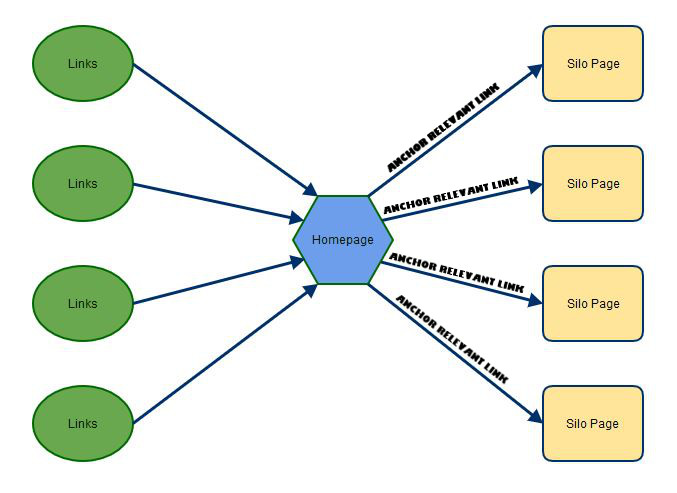I build a lot of private networks. Back in 2013-2014 I produced the best course out there on how to do this successfully. The single most important skill in building a private network is knowing how to properly evaluate domains to purchase and build on.
Skill in evaluating previously owned domains is not only useful for building private network sites. These domains can be even more useful as money sites. You can use their authority to build solid ranking internal pages just like you use their authority to build solid links when you use them as a network site.
I’m not going to go in depth on how to evaluate sites (maybe that will be a tip for another day). Everyone has their own methods. Whatever method you use, there will be a few things you want to do if you are looking to build the domain into a money site.
First, just like with network sites, you want to try to find domains that have not had spammy tactics used on them in the past, but you need to be even more selective with a possible money site. Unlike with network sites, you are absolutely trying to rank these sites. With a network site, I’ll accept a spammy link profile many times as long as it is not in one of the major spammy niches like payday loans, weight loss, make money online, credit cards, business coaching, etc.
Knowing that we want to look for a clean link profile, the most ideal sites are ones that have a lot of brand or generic anchor text pointing at them. A great example I once saw was a 4-letter domain that previously was a website for a radio station. Think something like WKRP.tld with a ton of links using WKRP and WKRP.tld as anchors. This sort of domain is absolutely perfect to convert into a money site.
Other great examples I have found are former charity sites, organizations that no longer exist, and political related sites.
You don’t have to limit yourself in any way to just these types of sites. If you find one of these though, they are usually gold. When they already have a ton of generic and brand related anchor text, you can hammer the site with links that have keyword specific anchor text and not worry about it. It can make ranking much easier.
Does Relevancy Matter?
If you happen to find a niche specific site, be cautiously excited. For example, you want to set up a site about reverse mortgages, and you come across www.reversemortgagesinfo.tld in the auctions and all of its metrics look good. It has a lot of relevant links from decent sources.
Your first reaction is probably going to be to jump all over this domain. Bid $1,000, $1,200, maybe even $1,500. Who cares? A site ranking well for terms relating to reverse mortgages could make that amount of money in a week easily.
You have to ask yourself one question though. If the site is about reverse mortgages, has a lot of relevant links, has a great domain name, then why did the previous owner let it go? People do not regularly just drop domains like that.
What would I do with a domain like this?
Well, I would not want to ignore the fact that I may have just stumbled onto a goldmine. It’s unlikely, but possible. Two things I would do.
First, I would try to track down the previous owner. Yep. Go to the WhoIs information. Check the site in the WayBack Machine. Anything to try to find a contact email address or phone number. If I can contact them, I can see if they are willing to divulge any information about the domain. They might say they just let it go because they moved on to something else. They also might let you in on things like it received a manual penalty or that it tanked around a date that coincides with a specific Google update. If it was likely hit by Penguin, I’m going to see how bad the links are and potential cleanup to determine if it is worth the effort. If it was hit by a manual penalty, it depends on what the penalty was for. I have a process I have used in acquiring domains with manual penalties and getting them lifted. It works almost every time.
I’m going to factor these issues into the price I’m willing to spend on it. More risk = lower price.
If I cannot get in touch with the previous owner, what I would do is try to get the domain cheap and take a chance on it. I’m not going to blow a lot of money on a domain like this without more information, but I do not mind taking risks if it is inexpensive.
The last thing you want to do though is spend a ton of time building a great site on this domain only to find that it is never going to rank. I’m going to test it first.
I’m going to put some very simple content on the home page with a link to an internal page using the title of that internal page as the anchor text. I want the title to be something fairly long term and easy to rank for.
For the reverse mortgage example, I would probably go with something like How do I know if a reverse mortgage is right for my parents? The internal page is going to be about that topic and that will be the exact title. I give it about two weeks, and if I see the internal page indexed but I do not see it ranking in at least the top 100 for that search term, I can be pretty sure that the domain is a dud.
I can live with wasting a little bit of money in a situation like that. What I hate to do is waste a whole bunch of time building out a full site and it never moves in the rankings. Testing a site like this saves you from doing that.
If the site does appear to be a dud as a money site, it could still work out as a network site at that point, so it is not a total loss.
Take Advantage Of Its Power
Once you have a site to use, whether it is relevant or not, it’s time to start building the site on it.
Remember, that for aged domains like this, most of their authority is in the homepage, unless it had a lot of internal pages that attracted a lot of links.
We want to take advantage of this. There are two different ways to look at this.
For a relevant site. In this case, of course the homepage does have a lot of relevant links coming into it.
You are perfectly fine in trying to rank the homepage for some of the major keywords you are targeting, as well as building silos to target other related keywords. You are going to approach this as you would basically any other money site.
For a non-relevant site. This will be a little different. There are no relevant links, so there is really no point initially in trying to rank the homepage for any of your major search terms. Instead, you want to create landing or silo pages that are targeting those terms and build silos around them. You want the homepage to link to the landing pages directly with a keyword relevant anchor link.
We are harnessing the non-relevant link equety that is flowing to the homepage and turning it into a relevant link. This is a technique I call link laundering.

A few other things I do:
Cleanup any obviously spammy links. Just like you would do for any other money site.
Begin link building like you would on any other project. Put the site in directories, start hitting it with private network links, do some link outreach, etc.
If you are one of those people that worry about anchor variety, you don’t have to here. If the site has a lot of generic links or non-relevant anchor links pointing at it already, you can go 100% keyword rich anchors for your links on this site.
Using these tips you can find some great domains that will give you a leg up when you start your next money site.



